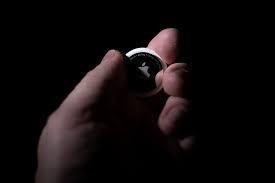CES 2026: How Emerging Technology is Shaping the Year Ahead
An expert breakdown of CES 2026, exploring how robotics, intelligent devices, and next‑gen computing are shaping technology and professional workflows in 2026.

Apple is facing a major lawsuit after a U.S. court ruled that claims linking AirTag misuse to stalking can move forward, spotlighting safety gaps in tracking devices.
Apple is now facing mounting legal pressure as a U.S. federal appeals court ruled that a class-action lawsuit can proceed against the company, alleging that its AirTag tracking device has enabled widespread stalking and privacy invasions—despite Apple’s attempts to dismiss the claims.
📌 What’s the Lawsuit About?
The lawsuit, filed by multiple plaintiffs, accuses Apple of negligently releasing and marketing the AirTag in a way that enables stalkers and abusers to secretly track individuals—particularly women.
Despite implementing anti-stalking features like alerts and sound beacons, plaintiffs argue that these measures are insufficient and easily bypassed. The court acknowledged Apple’s efforts but concluded that plaintiffs presented enough evidence for the case to proceed under negligence and product liability claims.
❓ Why Are AirTags Controversial?
Apple AirTags, launched in 2021, were marketed as a convenient way to locate lost items. But soon after their release, concerns about misuse began to emerge. Reports include:
Although Apple has partnered with law enforcement and introduced software updates to alert users, critics say the company prioritized convenience over safety.
What Did the Court Say?
The Ninth U.S. Circuit Court of Appeals ruled that:
The court’s decision doesn’t mean Apple is guilty—but it allows the case to proceed to trial or settlement.
Apple’s Response
Apple responded by reaffirming its “industry-leading” anti-stalking protections, pointing to features like:
Still, critics say non-iPhone users are disproportionately vulnerable, and real-time alert delays can make the features ineffective.
Broader Implications for Tech and Safety
This case could set a major legal precedent for IoT tracking devices and consumer safety obligations:
The court’s ruling marks a turning point in how courts view tech accountability and privacy risks in the era of ubiquitous tracking.
Final Word
The outcome of this lawsuit may redefine the balance between product convenience and user safety, not just for Apple but for the entire consumer tech industry. As stalking cases rise globally, tech companies may be forced to rethink how they build and release location-tracking products.
An expert breakdown of CES 2026, exploring how robotics, intelligent devices, and next‑gen computing are shaping technology and professional workflows in 2026.
Comprehensive guide to using AI tools for content creation, marketing automation, and audience engagement. Discover practical strategies for SEO optimization, social media management, and maintaining brand authenticity while scaling content production.
TIME Magazine has honored the AI Architects as its 2025 Person of the Year, acknowledging their groundbreaking work that pushed artificial intelligence to the center of global innovation.
